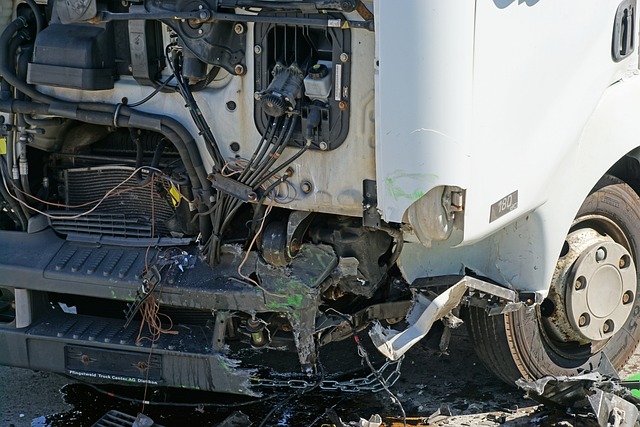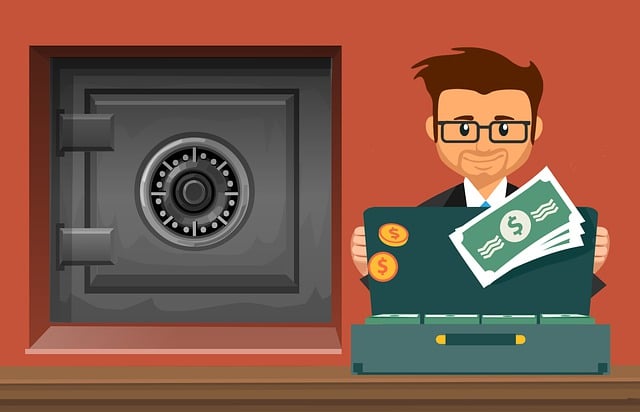An article exploring the strategic financial safeguard of a personal umbrella policy is timely, given the escalating costs associated with third-party liability claims. This comprehensive guide delves into the expanded scope of protection that such a policy offers, beyond the confines of typical homeowner or auto insurance. It elucidates how this additional layer of coverage can shield against substantial bodily injury and property damage liabilities, reflecting on recent trends highlighted by the Wall Street Journal. From assessing the inadequacy of current homeowner liability provisions to understanding the benefits of accidental injury coverage and robust property damage insurance, the article provides a clear framework for discerning readers to evaluate the necessity and value of an umbrella policy in their personal risk management strategy.
- Understanding the Role of a Personal Umbrella Policy in Liability Protection
- The Significance of Third-Party Liability Coverage Beyond Standard Policies
- Homeowner Liability: Why Your Current Insurance May Not Be Adequate
- Extending Your Safety Net with Accidental Injury Coverage
- Property Damage Insurance: What an Umbrella Policy Can Do for You
- The Rise in High-Cost Claims and the Need for Enhanced Protection
- Evaluating the Financial Impact of a Personal Umbrella Policy
Understanding the Role of a Personal Umbrella Policy in Liability Protection

A personal umbrella policy serves as a critical financial safeguard, extending the limits of liability beyond those provided by standard homeowner or auto insurance policies. This supplementary coverage is particularly important in mitigating third-party liability risks, where an individual may be held responsible for bodily injury or property damage that exceeds the coverage thresholds of their primary policies. For instance, if a guest slips and falls on your property and sustains a significant injury, or if your dog accidentally injures someone, the costs associated with medical expenses, legal fees, and potential settlements can be substantial. An umbrella policy steps in where the underlying insurance coverage stops, offering a broad range of protection that includes accidental injury coverage for situations where you are held liable.
Furthermore, property damage insurance under an umbrella policy becomes indispensable when the costs to repair or replace another person’s property far exceed the coverage limits of a standard homeowners or renters policy. In today’s litigious society, even unintentional events can lead to high-cost claims and potential lawsuits. The additional layer of protection provided by a personal umbrella policy ensures that you are not left financially vulnerable in the event of such occurrences. With the frequency of high-cost claims on the rise, as reported by the Wall Street Journal, securing an umbrella policy is a prudent measure to safeguard your financial well-being and provide peace of mind against unforeseen liability issues.
The Significance of Third-Party Liability Coverage Beyond Standard Policies

A personal umbrella policy serves as a critical component in one’s insurance portfolio, offering expanded third-party liability coverage beyond the confines of standard homeowner or auto insurance policies. This extended coverage is particularly significant when considering the potential financial impact of accidents, lawsuits, or incidents for which an individual may be held responsible. For instance, if an incident on your property results in accidental injury to a guest, the costs associated with medical care, legal defense, and settlements can quickly exceed the limits of a typical homeowner’s insurance policy. An umbrella policy steps in where those policies leave off, providing additional layers of protection that ensure your personal assets remain secure.
Furthermore, third-party liability extends beyond mere bodily injury coverage; it also encompasses property damage insurance. This means that if your actions or inactions lead to damage to another person’s property, the umbrella policy can offer financial relief that covers the cost of repairs or replacement. Additionally, it can offer a broader range of protection, such as defense costs should you be sued without fault, which are not typically included in standard policies. In today’s litigious society, where claims and lawsuits can escalate rapidly, having a personal umbrella policy is a prudent measure to safeguard one’s financial well-being from unforeseen liabilities that could otherwise compromise one’s financial stability as reported by the Wall Street Journal.
Homeowner Liability: Why Your Current Insurance May Not Be Adequate

In today’s litigious environment, homeowners often find that their standard homeowner insurance policies may not offer adequate protection against third-party liability claims. A homeowner liability incident can arise from various scenarios, such as a visitor slipping and falling on your property or your dog biting someone. These events can result in costly legal battles and substantial settlements or judgments that might exceed the coverage limits of a typical policy. A personal umbrella policy serves as an essential safeguard by providing additional layers of liability protection beyond these limits. It extends coverage for accidental injury coverage, ensuring that you are not financially devastated by a single lawsuit. For instance, if a guest is seriously injured on your property and decides to sue, the costs can quickly escalate, potentially depleting your savings. An umbrella policy steps in where your primary insurance leaves off, offering a broader scope of financial protection that can keep you from losing your home or assets as a result of such claims. Additionally, it often covers property damage insurance, which means if your actions—or even your pets—cause damage to another person’s property, the umbrella policy can help cover the expenses involved in repairing or replacing these items. This added layer of security is particularly valuable for those with significant assets to protect, as it provides peace of mind that your financial well-being will be safeguarded against unforeseen and potentially ruinous liability claims.
Extending Your Safety Net with Accidental Injury Coverage

In today’s litigious environment, a personal umbrella policy serves as an invaluable safety net that extends far beyond the coverage limits of standard homeowner or auto insurance policies. This additional layer of protection is crucial for safeguarding your financial assets against substantial claims and lawsuits arising from bodily injury or property damage you may be responsible for. For instance, if a visitor at your home sustains an injury due to your pet or a slip and fall incident, the costs associated with their medical care could exceed the limits of your primary policy. An umbrella policy can provide the necessary funds to cover these expenses without depleting your savings. Moreover, it extends coverage to include third-party liability, which is particularly important when considering scenarios where you or a member of your household inadvertently cause injury or damage to others.
Accidental injury coverage under an umbrella policy is not just about protecting against the aftermath of an incident at home; it also offers protection on a broader scale. It can kick in when you’re away from your residence, such as during travel or social events, where accidents are more unpredictable. Beyond bodily harm, property damage insurance within an umbrella policy is equally significant. It covers the potential financial fallout from damaging someone else’s property, whether it’s a parked car in a grocery store parking lot or a neighbor’s garden accidentally damaged by lawn maintenance. With the frequency of high-cost claims on the rise, as reported by the Wall Street Journal, having a personal umbrella policy is a prudent measure for anyone looking to fortify their financial well-being against the unforeseen.
Property Damage Insurance: What an Umbrella Policy Can Do for You

A personal umbrella policy serves as a critical safeguard against liability claims that exceed the limits of traditional homeowner or auto insurance policies. This additional layer of coverage is particularly beneficial for incidents involving property damage, which can often result in substantial costs. For example, if you are responsible for an accident that damages another person’s property, such as their car, home, or other possessions, the expenses can quickly accumulate, potentially depleting your savings. An umbrella policy steps in where your primary insurance leaves off, offering higher liability limits tailored to provide comprehensive protection against such claims. This means that whether it’s a costly lawsuit following an accidental injury on your property or damage caused by your pets, a personal umbrella policy can offer peace of mind that your assets and financial security are protected from third-party liability claims. With the rise in high-cost claims as reported by sources like the Wall Street Journal, having this additional coverage is not just a consideration but a prudent measure for anyone looking to secure their long-term financial stability against unforeseen events involving property damage insurance.
The Rise in High-Cost Claims and the Need for Enhanced Protection

In recent years, there has been a noticeable rise in high-cost claims arising from third-party liability incidents. These events can stretch beyond the coverage limits of standard homeowner or auto insurance policies, potentially exposing individuals to significant financial risk. A personal umbrella policy serves as a critical safeguard against such exposure by providing an additional layer of protection that extends beyond the basic coverage. It is designed to kick in when the limits of your primary insurance are exceeded. For instance, if you are held liable for accidental injury coverage and the costs surpass your existing policy’s cap, the umbrella policy can cover the remainder. Similarly, in cases of property damage insurance where repairs or replacement costs are substantial, this additional coverage can be indispensable. The increasing complexity and cost of legal proceedings mean that even a single event can lead to financial repercussions far beyond what one might anticipate. Therefore, acquiring a personal umbrella policy is an informed decision for those seeking to fortify their homeowner liability protection against the unpredictability of modern litigation and claims. It provides peace of mind, knowing that additional support is in place should the unexpected occur.
Evaluating the Financial Impact of a Personal Umbrella Policy

When assessing the financial impact of obtaining a personal umbrella policy, it’s crucial to consider how this coverage extends beyond the limits of traditional homeowner and auto insurance policies. This additional layer of third-party liability protection is designed to kick in once the underlying policy limits are exhausted, providing a safeguard against significant claims and lawsuits. For instance, if someone is injured on your property and seeks compensation for medical expenses and lost wages that exceed your homeowner liability coverage, the umbrella policy steps in to cover the remaining costs. Similarly, if you’re found legally responsible for property damage that surpasses what your auto or renters insurance covers, this policy can offer peace of mind by covering these expenses as well.
The financial implications of not having an umbrella policy can be severe, especially considering the rising cost of legal defense and settlements, as highlighted in reports from sources like the Wall Street Journal. Accidental injury coverage under an umbrella policy can protect your assets by providing broader protection than what is typically offered in a standard home or auto insurance policy. This is particularly important for individuals with higher net worth who are at greater risk of liability claims that could potentially deplete savings or lead to liquidation of assets. With the right personal umbrella policy in place, policyholders can rest assured that their financial well-being is more secure against unforeseen events and the attendant costs associated with such occurrences.
In light of the increasing frequency and cost of liability claims—a trend underscored by recent reports from the Wall Street Journal—the acquisition of a personal umbrella policy emerges as a judicious step for robust financial protection. This article has illuminated the critical role such policies play in extending third-party liability coverage beyond the scope of conventional homeowner or auto insurance, offering a comprehensive shield against bodily injury, property damage, and legal liabilities. Homeowners, in particular, are reminded that their current policies may not suffice in all circumstances. An umbrella policy serves to augment accidental injury coverage and property damage insurance, ensuring that one’s assets remain secure against unforeseen and potentially exorbitant claims. In this context, the decision to invest in a personal umbrella policy is not merely a precaution but an essential strategy for maintaining financial stability and peace of mind in today’s uncertain environment.



